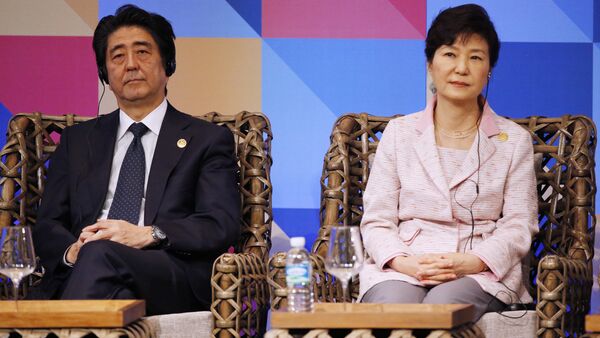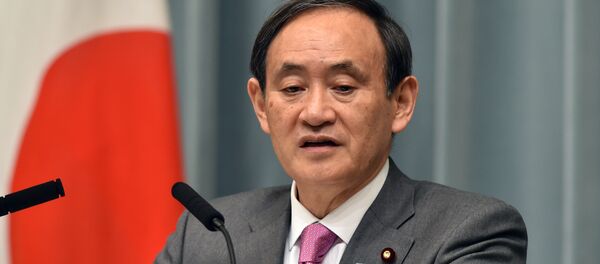Currently, the term is 6 years but can be extended up to 9 years. One reason given by Japan for this extension is the ongoing preparation for the Olympics, which will be held in Tokyo in 2020.
However, the Olympic Games in Tokyo is not the only and moreover, is not the main reason for such changes, according to the head of Center for Japanese Studies at the Russian Academy of Sciences, Valery Kistanov.
“I believe the main reason is that after the arrival of Abe to power for the second time in 2012, Japan entered a period of stability. Before him, the prime ministers used to change very often, almost every year. This was a very negative factor for the political and economic situation,” Kistanov told Sputnik Japan.
The expert further said that with Abe, Japan is guaranteed six years of stability. According to him, no opposition can offer that kind of stability to Japan right now.
“At the same time as a politician, Abe is setting ambitious foreign policy objectives. For example, the revision of the 9th article of the Constitution in which Abe has made a new interpretation of the right to collective self-defense. However, the procedure for revision of the basic law is quite complicated and time consuming. Abe obviously does not have time to do it until 2018,” the expert said.
Similarly, President of the Republic of Korea, Park Geun-hye, has also proposed amendments to the constitution that would allow the head of state to be elected for two consecutive terms. In her view, a five-year presidential term is not enough as it limits the effectiveness of the authorities.
According to Konstantin Asmolov, expert at the department of Korea at the Russian Academy of Sciences, one term has its both advantages and disadvantages.
“In any case, the South Korean constitution with new amendments will not affect the current President Park Geun-hye. Unless there is a force majeure, it should not be seen as a personal initiative of Park Geun-hye as a desire to extend her stay in office,” Asmolov said.
Also, for the first year and a half, the president assigns his people to key posts and gets rid of the previous president's legacy. As a result, it turns out that the effective time for the president to engage in reforms and possibly start some kind of innovative changes is just two and a half years.
Looking at the disadvantages, the expert said that, “Meanwhile, even this period was enough for Park Geun-hye to make a decision regarding placing the US missile defense system on the South Korean territory.”
The move caused numerous protests from the population but the government explained it as a need to confront the “nuclear missile threat from North Korea,” Asmolov said.
He further said that the main reason for the initiative of Park Geun-hye to extend the presidential term is a struggle for power when none of the parties have any bright candidates.
“The former UN Secretary-General Ban Ki-moon is already being pulled by both the conservatives and opposition, while it is not a fact that he would pursue the same policy as Park Geun-hye,” the expert said.
Ban Ki-moon however, has not yet revealed his final decision. “He only promised to come to South Korea next year — to look around, think and only then make a decision.
Although, both the right and the left parties believe that Ban Ki-moon is exactly what they need,” Asmolov concluded.




